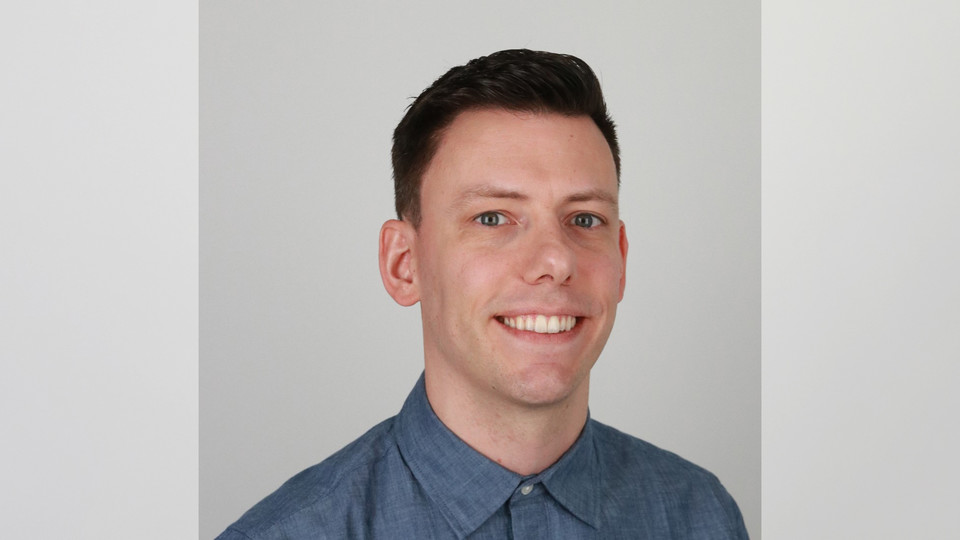Rice Business names Constance Porter senior associate dean of Diversity, Equity and Inclusion
Constance Porter, assistant clinical professor of marketing, has joined the leadership team of the school’s newly expanded Office of Diversity, Equity and Inclusion (DEI).
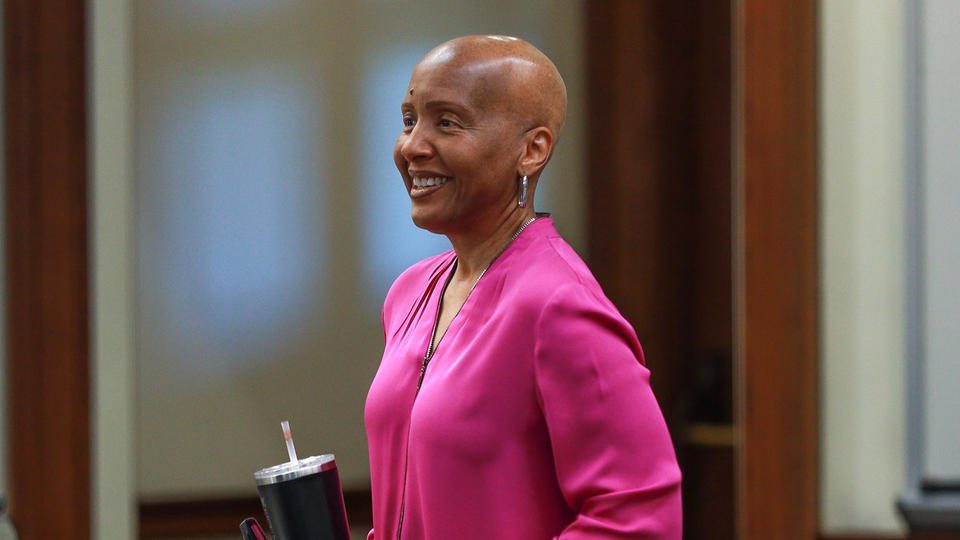
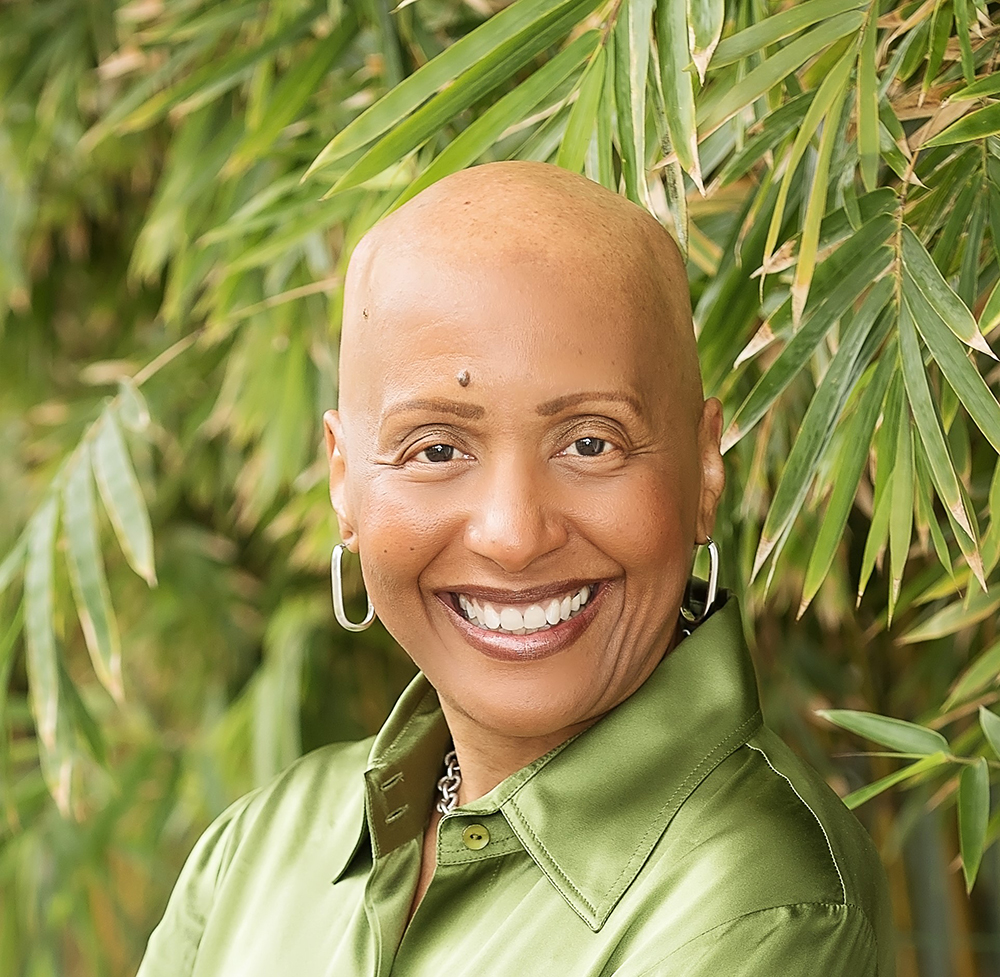 Constance Porter, assistant clinical professor of marketing at Rice University’s Jones Graduate School of Business, has joined the leadership team of the school’s newly expanded Office of Diversity, Equity and Inclusion (DEI).
Constance Porter, assistant clinical professor of marketing at Rice University’s Jones Graduate School of Business, has joined the leadership team of the school’s newly expanded Office of Diversity, Equity and Inclusion (DEI).
As the senior associate dean of the DEI office, Porter is part of the Rice Business Task Force on Racial Equity and Social Justice, which is charged with researching, evaluating and recommending actions to promote diversity and inclusion at the school.
“I am honored to serve in this new role at a momentous time in the history of our school. The task force established by Dean (Peter) Rodriguez paved the way for the expansion of our DEI office,” Porter said. “I look forward to engaging and partnering with students, staff, faculty, alumni and stakeholders in our greater community as we continue the work to be done to amplify DEI at Rice Business.”
Porter joined Rice in fall 2011 and teaches marketing, marketing research and customer relationship management, consistently earning outstanding reviews from her students. She also leads an experiential learning course, Marketing Lab, as well as two integrative executive seminars.
“I look forward to working with Connie as she brings her deep insight and thoughtful perspective to this new position as we commit to advancing the school’s goals of diversity, equity and inclusion with students, staff, faculty, alumni and beyond,” Rodriguez wrote in an announcement to the campus.
Porter earned a bachelor’s degree in economics from the Wharton School of the University of Pennsylvania (with dual concentration in finance and public policy), an MBA from the University of Michigan (with dual emphasis in operations and corporate strategy) and a Ph.D. in marketing from Georgia State University. Prior to her career in academia, she spent several years as a management consultant with multiple firms.
You May Also Like

Rice University’s Jesse H. Jones Graduate School of Business today announced the launch of its Graduate Certificate in Healthcare Management program, a 10-month, credit-bearing professional credential designed for current and aspiring leaders seeking deep expertise in the business of healthcare.
Entrepreneurial Ambitions in Houston's Strong Startup Ecosystem feat. Kyle Judah and Sophie Randolph ’22
Season 1, Episode 15
Kyle Judah, Executive Director of the Liu Idea Lab for Innovation and Entrepreneurship (Lilie) at Rice University, and Sophie Randolph ’22, join host Christine Dobbyn. They discuss programming at Lilie during the pandemic, Houston's startup ecosystem and resources for alumni entrepreneurs.

Owl Have You Know
Season 1, Episode 15
Kyle Judah, Executive Director of the Liu Idea Lab for Innovation and Entrepreneurship (Lilie) at Rice University, and Sophie Randolph ’22, join host Christine Dobbyn. They discuss programming at Lilie during the pandemic, Houston's startup ecosystem and resources for alumni entrepreneurs.
Subscribe to Owl Have You Know on Apple Podcasts, Spotify, Youtube or wherever you find your favorite podcasts.
You May Also Like
Opening Act
Why famous friends don't always help.
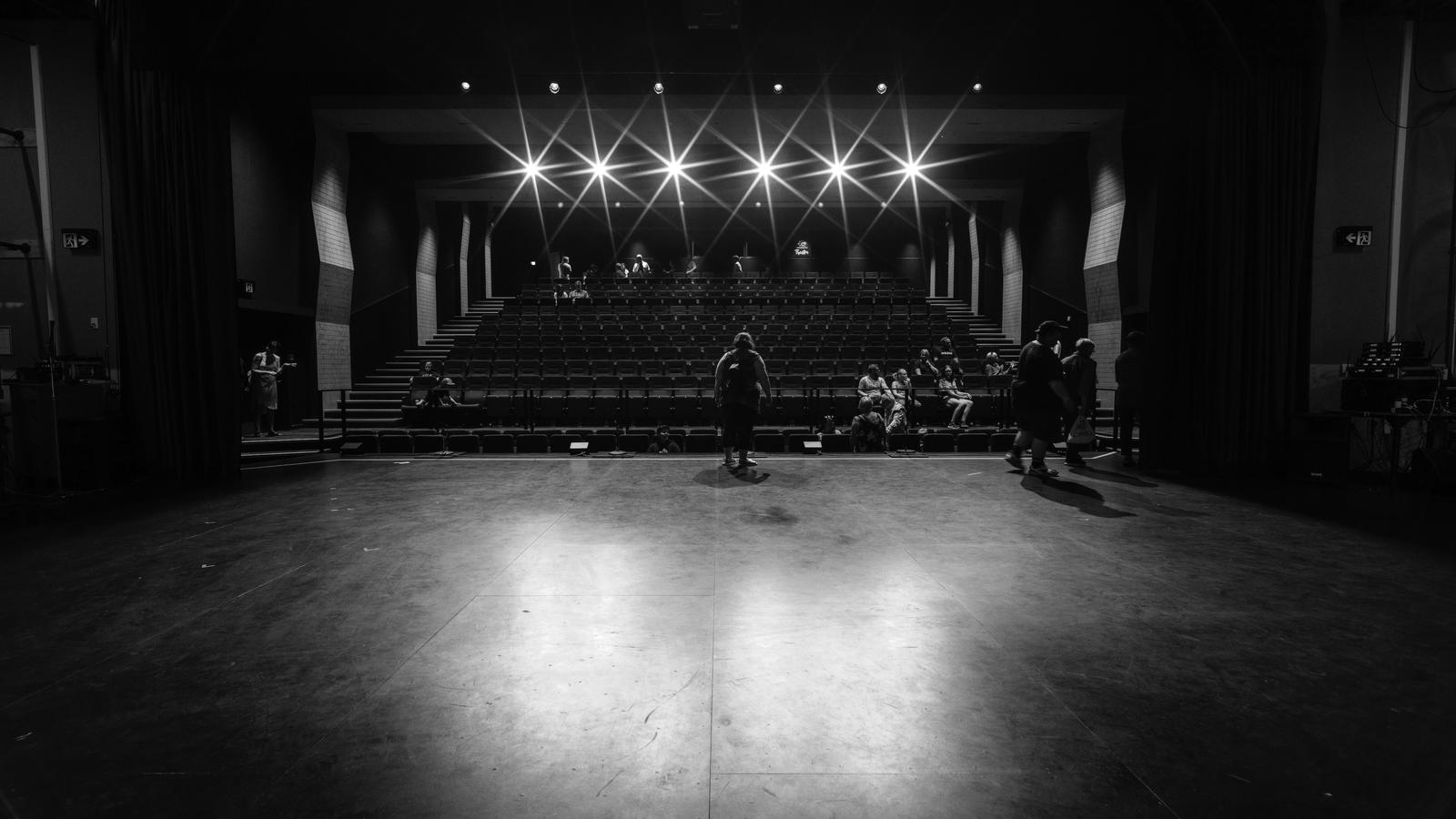
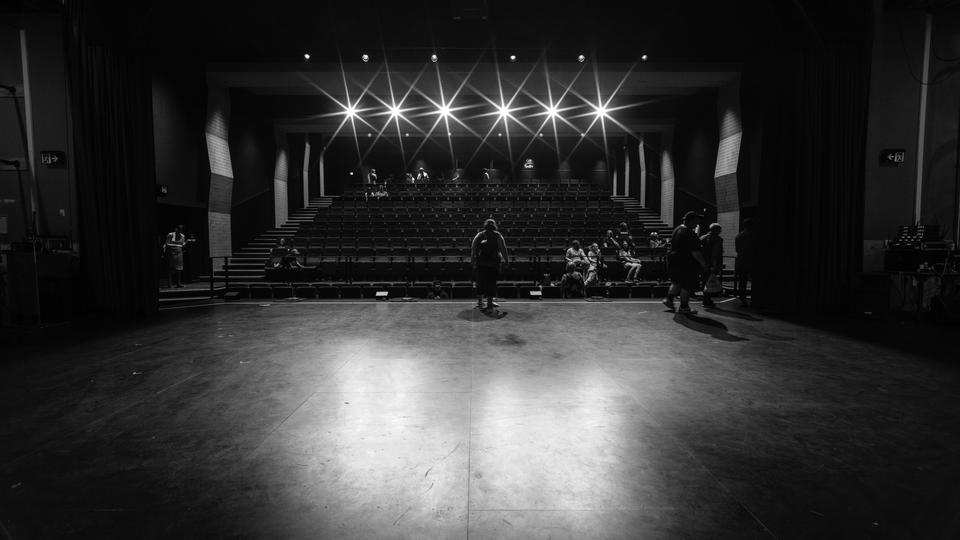
Based on research by Alessandro Piazza
Why famous friends don't always help.
- Professional musicians often come to question the value of playing second fiddle to anyone – even an A-lister.
- Research by Rice Business professor Alessandro Piazza confirms the musicians are right to wonder: bands that consistently open up for groups with higher status earn less money – and are more likely to break up than those that don’t.
- These findings fly in the face of much existing business research, which concludes that affiliating with high-status colleagues often gives newcomers a professional boost.
In a timeless scene from the mockumentary "This Is Spinal Tap," an 80s metal band swaggers in for a performance only to find they’re billed second to a puppet show. Though the film is farce, real musicians often come to question the value of playing second fiddle to anyone – even an A-lister.
Now research by Rice Business professor Alessandro Piazza and colleagues Damon J. Phillips and Fabrizio Castellucci confirms those musicians are right to wonder. In fact, they discovered, the only thing worse than performing after a puppet may be opening up for an idol. Bands that consistently open up for groups with higher status, the researchers found, earn less money – and are more likely to break up than those that don’t.
“Three cheers,” The Economist wrote about the researchers, for confirming “what many people in the music industry have long suspected – that being the opening band for a big star is not a first class ticket to success.”
While the findings may be intuitive for seasoned musicians, they fly in the face of existing business research. Most research about affiliations concludes that hobnobbing with high-status colleagues gives lowly newcomers a boost. Because affiliations give access to resources and information, the reasoning goes, it’s linked with individual- and firm-level successes such as landing jobs and starting new ventures.
Both individuals and organizations, one influential study notes, benefit from the “sum of the resources, actual or virtual, that accrue to an individual or group by virtue of possessing a durable network of more or less institutionalized relationships.”
That’s largely because in many fields up and comers must fight to be taken seriously – or noticed at all. This problem is often called “the liability of newness:” In order to succeed, industry newcomers first need to be considered legitimate by the audience they’re trying to woo.
Showing off shiny friends is a classic solution. In many fields, after all, linking oneself with a high-status partner is simply good branding: a shorthand signal to audiences or consumers that if a top dog has given their approval, the newcomer must surely have some of the same excellent qualities.
Unfortunately, this doesn’t always hold true – especially in the creative world, Piazza’s team found. In the frantic world of haute cuisine, for example, a faithful apprentice to a celebrity chef may actually suffer for all those burns and cuts in the star’s hectic kitchen. Unless they can create meals that are not just spectacular, but show off a distinct style, consumers may sneer at the newcomer as a knockoff of the true master.
So what determines if reflected glory makes newcomers shine or merely eclipses them? It has to do with how much attention there is to go around, Piazza said. While partnering with a star helps in some fields, it can be a liability when success depends on interaction between audience and performer. That’s because our attention – that is, ability to mentally focus on a specific subject – is finite. Consumers can only take in so much at a time.
Marketers are acutely aware of this scarcity. Much of their time, after all, is spent battling for consumer attention in an environment swamped by competitors. The more rivals for advertising attention, research shows, the less a consumer will recall of any one ad. In the world of finance, publicly traded companies also live and die on attention, in the form of analyst coverage of their stocks and angel investors’ largesse.
Musicians who perform live, Piazza said, are battling for attention in a field that’s gotten progressively more fierce, due to lower album sales and shorter career spans. Performing in the orbit of a major distraction such as Taylor Swift or Beyoncé, however, only reduces the attention the opening act gets, the researchers found. Though performances are just a few hours, the attention drain can do lasting harm both to revenue and career longevity.
To reach these conclusions, the researchers analyzed data about the live performances and careers of 1,385 new bands between 2000 and 2005. Supplementing this with biographical and genre information about each band along with musician interviews, the team then analyzed the concert revenue and artistic survival of each band.
They discovered that in live music, high status affiliation onstage clearly diluted audience attention to newcomers – translating into less revenue and lower chance of survival.
In part, the revenue loss also stems from the fact that even in big stadium performances, performing with superstars rarely enriches the underdogs. According to a 2014 Billboard magazine report, headliners in the U.S. typically absorb 30 to 40 percent of gross event revenues; intermediate acts garner 20 to 30 percent and opening acts for established artists bring as little as $15,000.
The findings were surprising, and perhaps dispiriting, enough for the researchers to carefully spell out their scope. Affiliation’s positive effects, they said, are most often found in environments of collaboration and learning – for example academia. In these settings, a superstar not only can bestow a halo effect, but can share actual resources or information. In the music world, however, the fleeting nature of a shared performance makes it hard for a superstar band to share much with a lower-ranked band except, perhaps, some euphoric memories.
Interestingly, in many businesses it’s easy for observers to quickly assume affiliations between disparate groups. In the investment banking industry, for instance, research shows that audiences infer status hierarchies among banks merely by reading “tombstone advertisements,” the announcements of security offerings in major business publications. Readers assume underwriting banks to be affiliated with each other when they’re listed as being part of the same syndicate – even if the banks actually have little to do with each other beyond pooling capital in the same deal.
In the music business, star affiliations mainly help an opening act a) if the audience understands there’s an affiliation and b) if they believe the link is intentional. But that’s not always the case because promoters and others in Big Music often line up opening bands. When possible, though, A-listers can do their opening acts a solid by making it clear that they’ve chosen them to perform there.
Otherwise, Piazza and his colleagues concluded, the light shed by musical supernovas typically gets lost in the darkened stadium. For the long term, business-minded bands may do best by working with peers in more modest venues – places where the attention they do get, like in Spinal Tap’s classic metric, goes all the way up to 11.
Alessandro Piazza is an assistant professor of strategic management at Jones Graduate School of Business at Rice University.
To learn more, please see: Piazza, A., Phillips, D. J. and Castellucci, F. High-Status Affiliations and the Success of Entrants: New
Bands and the Market for Live Music Performances, 2000–2012. In-press at Organization Science
Never Miss A Story
You May Also Like
Keep Exploring
Rice Business Plan Competition unveils teams for 2021 event
The Rice Business Plan Competition unveiled 54 startups that will showcase their business ideas at a virtual event next month. The competitors include five student teams from three Texas universities.
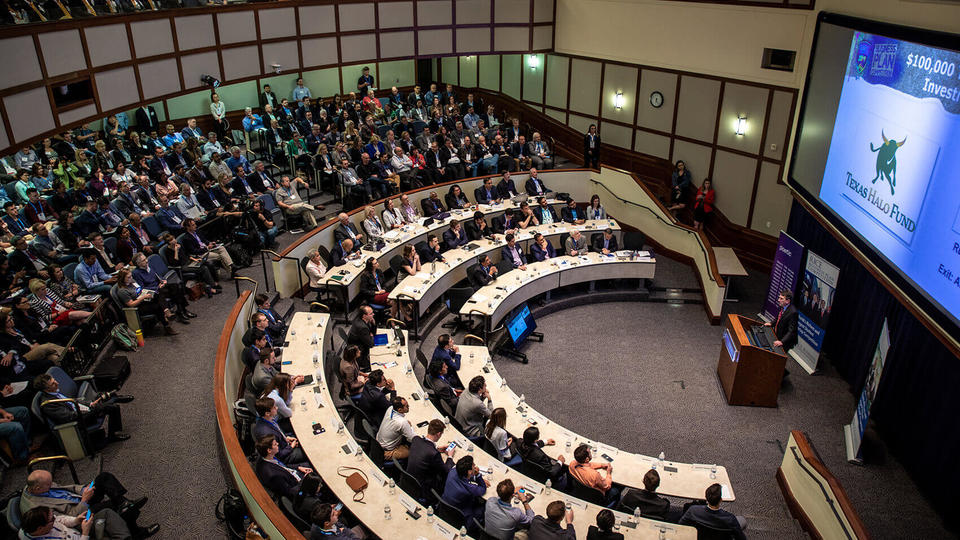
The Purpose in Problem-Solving feat. Joan Dunlap ’02
Season 1, Episode 14
Joan Dunlap ’02 joins host David Droogleever to discuss her experience as an engineer, the role of team chemistry in entrepreneurship and how problem solving plays a role in career satisfaction.

Owl Have You Know
Season 1, Episode 14
Joan Dunlap ’02 joins host David Droogleever to discuss her experience as an engineer, the role of team chemistry in entrepreneurship and how problem solving plays a role in career satisfaction.
Subscribe to Owl Have You Know on Apple Podcasts, Spotify, Youtube or wherever you find your favorite podcasts.
You May Also Like
Faculty Senate approves new undergraduate Business major
The Faculty Senate recently approved the undergraduate business major, which will start offering courses in fall 2021 according to Jeff Fleming, deputy dean of academic affairs. Undergraduates in the class of 2024 and beyond will be eligible to declare the new business major.

Rice offering undergraduate major in business starting this fall
We're excited to announce that we are launching an Undergraduate Business Major coming this fall! It will provide Rice University students with a robust foundation in leadership and business fundamentals.
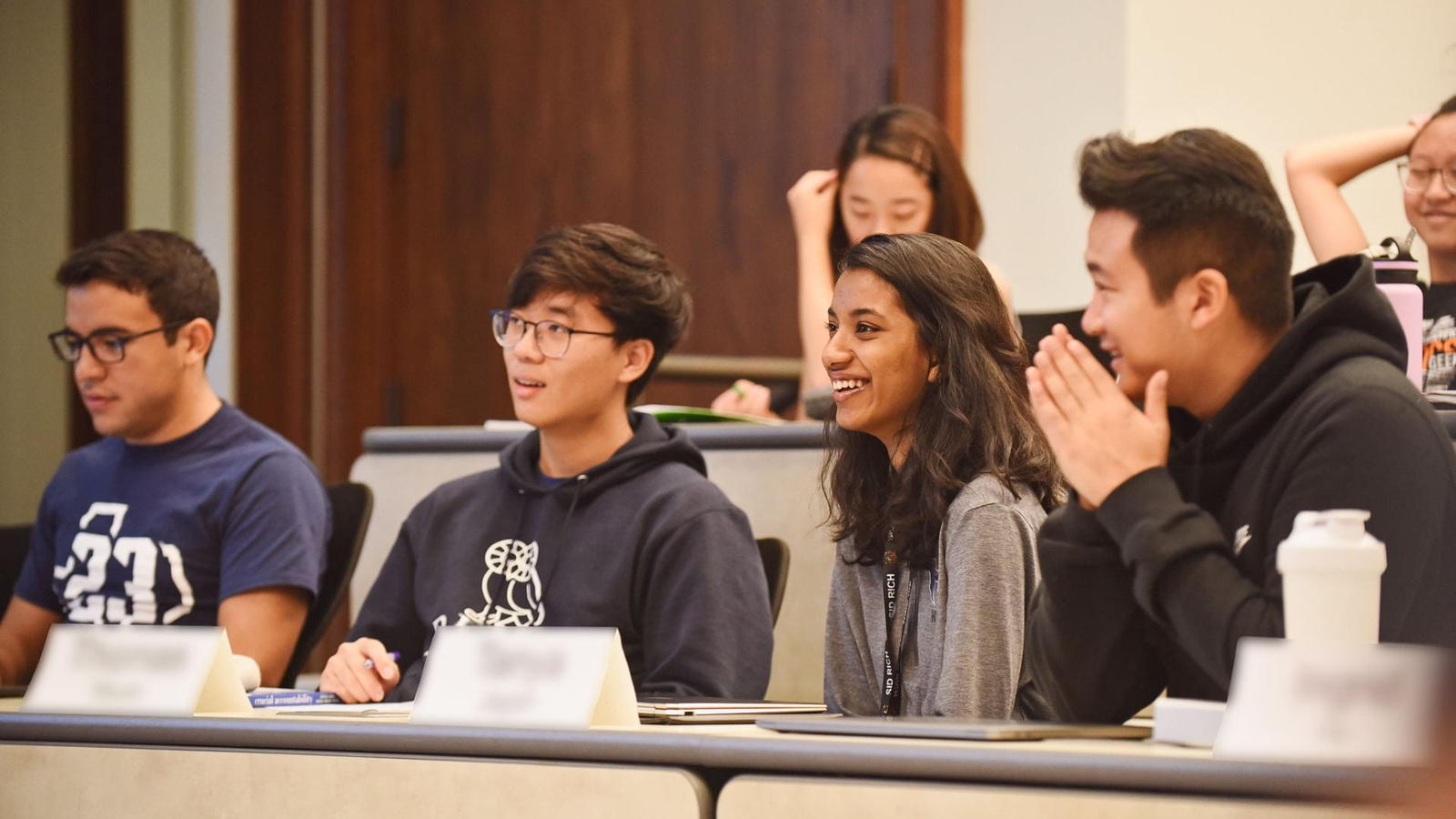
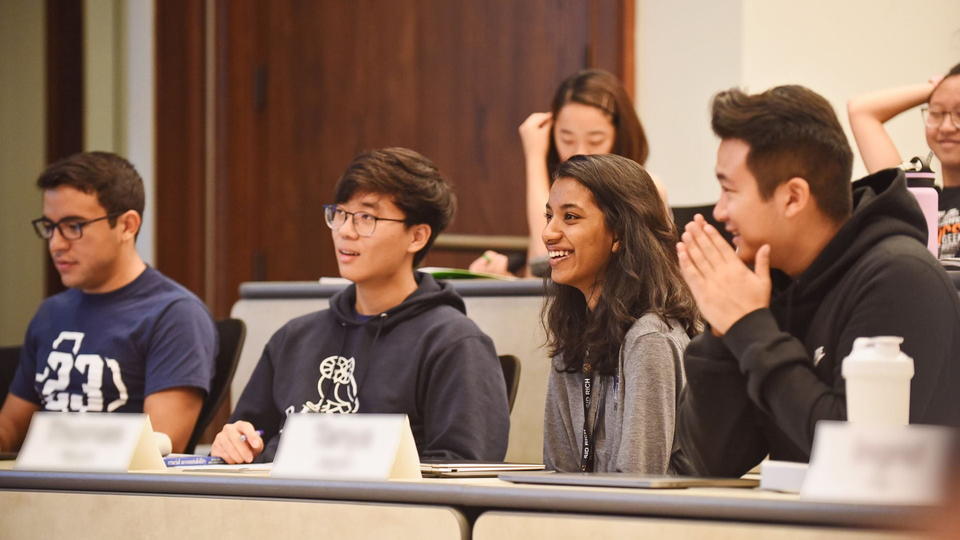
Rice University will offer an undergraduate major in business beginning this fall.
The curriculum will be administered through Rice’s top-ranked Jones Graduate School of Business (JGSB) and taught by its faculty.
“There’s a demand for deeper business education from our current and prospective students, and Rice Business can deliver to undergraduates the high-quality degree programs we have always delivered to MBAs, Master of Accountancy and Ph.D. students,” said Peter Rodriguez, dean of the Jones School.
Rice’s business major will offer a robust foundation in leadership and business fundamentals, including accounting, finance, marketing, organizational behavior, strategy and communications. To complete a major in business, students must also complete a finance or management concentration, which requires additional advanced courses. Both concentrations provide the knowledge, research and analytical skills to solve a broad array of today’s business problems.
“We strive to be a forward-thinking business school for the next generation of global leaders,” Rodriguez wrote in an announcement to the school. “I am thrilled to say we will now be educating tomorrow’s leaders a little bit sooner,”
Current freshmen and incoming undergraduates will be eligible. There will be no limit on the number of students in the program.
The new major joins Rice Business’ current offerings for undergraduates, a minor in business and a minor in entrepreneurship.
Rice Business offers a master’s degree program in business administration (MBA), a one-year Master of Accounting program and a Ph.D. program in business, the latter for students seeking academic careers at research universities.
For more information, visit https://business.rice.edu/undergraduate-business-major.
You May Also Like

Rice University’s Jesse H. Jones Graduate School of Business today announced the launch of its Graduate Certificate in Healthcare Management program, a 10-month, credit-bearing professional credential designed for current and aspiring leaders seeking deep expertise in the business of healthcare.
Hidden MBA Gems: Why These Students Love Their MBA Experience
“There’s a clear philosophy at Rice that prioritizes quality of relationships and learning,” says Christina Tamayo, who will graduate in 2022. “I’m excited by the diverse concentrations offered, particularly in energy and strategy."
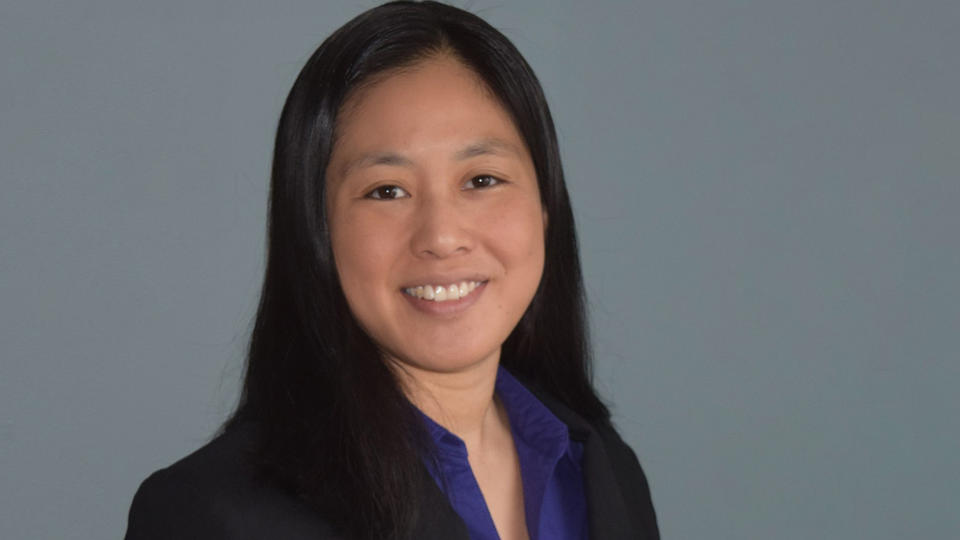
Rice University adds first undergraduate business major
Rice University's undergrad students can currently receive two separate minors in business, but they'll be able to receive a bachelor's for the first time this fall.
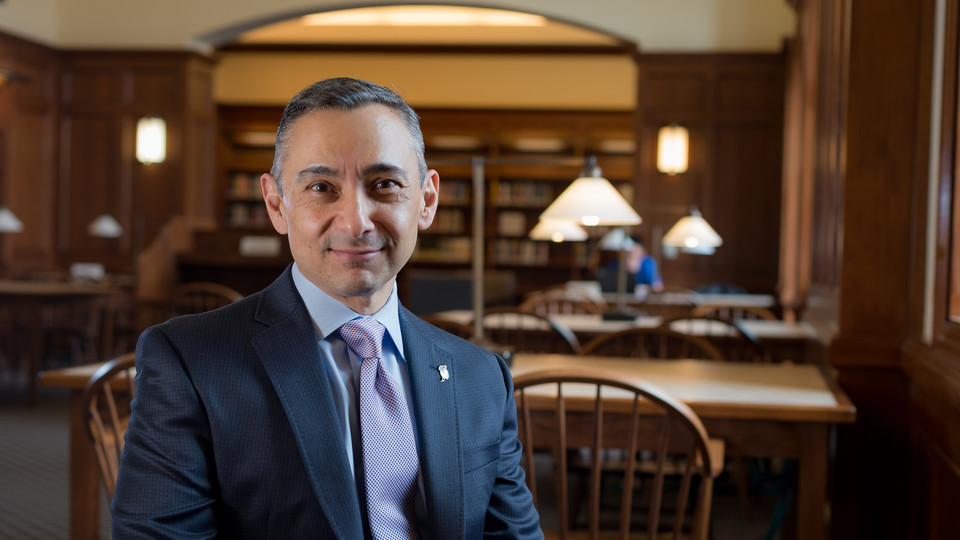
Insights from a Transportation Infrastructure Investment Banker feat. Mark Morehouse ’01
Season 1, Episode 13
Mark Morehouse ’01 joins Christine Dobbyn to explain how a chemical engineer ends up in business school, the role that private-public partnerships play in public projects and the effect that COVID has had on the sales practice.
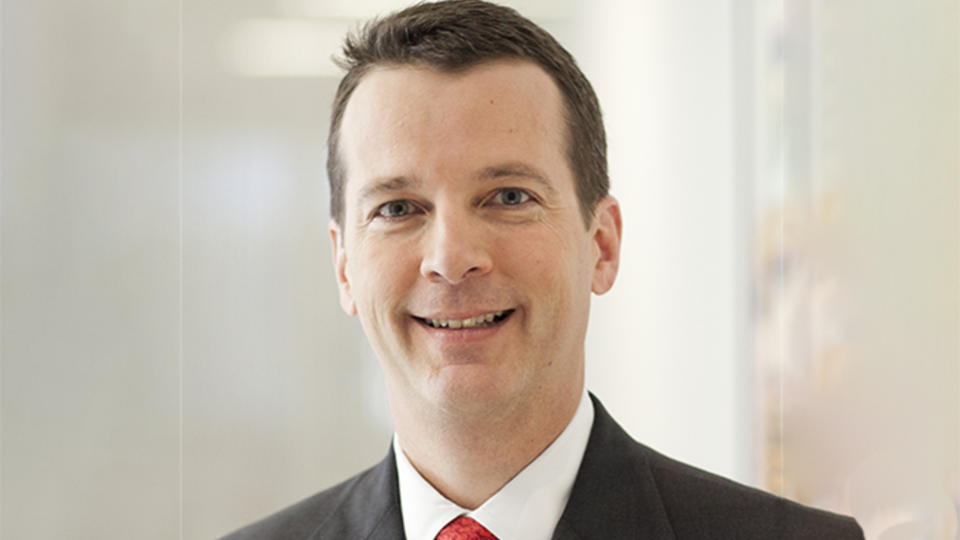
Owl Have You Know
Season 1, Episode 13
Mark Morehouse ’01 joins Christine Dobbyn to explain how a chemical engineer ends up in business school, the role that private-public partnerships play in public projects and the effect that COVID has had on the sales practice.
Subscribe to Owl Have You Know on Apple Podcasts, Spotify, Youtube or wherever you find your favorite podcasts.
